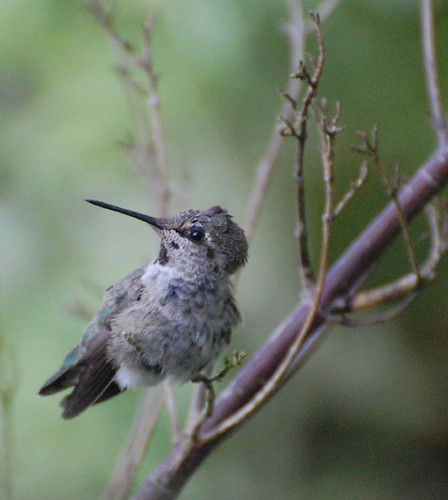I've mentioned that I need to spend more time doing research on my chosen spiritual path. The very idea of that sort of research is somewhat of a conundrum, as I thoroughly believe that one's spiritual journey is unique to oneself, and needs to be honored as such. Still, human beings throughout history have steeped themselves in spirituality; embarked on the journeys; seen and experienced marvelous mystical things. (And some…not so much.) The challenge is to tap into those whose journeys and discoveries speak to my own spirit, without adopting someone else's experience in toto as THE One And Only Way. In my humble opinion, that is where the human race has consistently gotten itself into big trouble.
In response to my need, my dear friend Jackie offered to send me some reading material. She asked me what I was interested in researching, and I, having no idea where to start, said "Pick something!" A few days later, a copy of Tom Cowan's Yearning for the Wind arrived on my front doorstep. It describes itself as "Celtic reflections on nature and the soul." So that is where I have started.
Though the book is a bit simpler and…what's the word I'm looking for? Shallower? …than I would have hoped, it does contain one or two interesting concepts. The one I'm particularly attracted to is Cowan's (and, I assume, ancient Celts' before him) definition of "the soul." Or, perhaps not so much a definition (for who can define that?) as a description.
Cowan makes an assertion that is altogether new to me, and yet, when I think about it, it makes perfect sense. He claims that our bodies live inside our souls, rather than the other way around. That our souls are actually part of what I will call the Universal Soul. Part of The All. And we, for the time we exist as humans, live inside of that.
I describe it lamely. Here is what he has to say:
It seems we have a choice. To believe that our souls are hidden inside our bodies where, we hope, they will be protected until we die and they are whisked away to heavenly safety. Or to believe that our bodies, minds, egos, and personalities are temporarily living within the soul, and that this soul exists to fill the entire universe. The first alternative usually implies that God is transcendent, somewhere in the heavenly realms, and we are in exile here on Earth, waiting to be released from this valley of tears. The second implies that God is right here, in the wind, sea, stars, flowers, storms—and the arm of God is around us. God walks in our footprints even as we step into God's. We are already with God, and God is with us.
What a liberating concept this is, to someone who not only grew up with that first alternative an unquestioned "fact" of life, but who spends much of her time feeling trapped inside her own head! Imagine that your soul surrounds you. That it goes before and stretches behind you. That it is the first to arrive and the last to leave wherever you go. That it touches everything you touch before your hand or your foot or your head gets there.
I have tried—and I can only do it for short periods of time—to walk around feeling my soul surrounding me. Knowing that it touches people and things before I physically do. It's difficult to describe the expansiveness, the acute awareness that this brings about how we not only affect other people and things, we are part of them, and they are part of us. It's almost too much to comprehend; and certainly daunting for a person as introverted and solitary as myself. Even so, it feels right. And it calls me, on a visceral level, to understand it and live it.
Another really fascinating aspect of this theory is the answer to the question of where does your soul go when you die? The answer to that being, "Nowhere…because it never left."
"As for death, I can't wait to be the hummingbird, can you?" *
*Mary Oliver: "Long Afternoon at the Edge of Little Sister Pond." See my sidebar.


















Some of the essays are better than others. And he does kind of dance from the Celts to Zen to Hildegard with a side order of mashed potatoes applied to uprights on a bridge over a little salmon stream on the Oregon coast. Apparently it's an Irish custom to leave potatoes for the fairies on Samhain. They forgot to do it the ngiht before so they did it the next day and puzzled the guy counting the migrating salmon.
ReplyDeleteHe is a good place to start. Seems to know his stuff, better than some and he doesn't peddle tarot cards.
I think that you might really enjoy Kathleen Norris's The Cloister Walk.
ReplyDeleteCeltic sprituality is really awesome. There's a Celtic Daily Prayerbook that some people love. When I get my books unpacked, following my upcoming move, I'll see if anything else strikes me...
ReplyDeleteAfter weeks without internet access except for the spotty service on my cellphone, I finally get to return to reading blogs. I opened yours first, and after a few sentences, I released a big exhale, the kind that makes you realize you've been holding your breath and didn't know it. I love the new sense of peace and acceptance I'm reading here. While my cyber-presence has been absent, my thoughts have been with you.
ReplyDelete